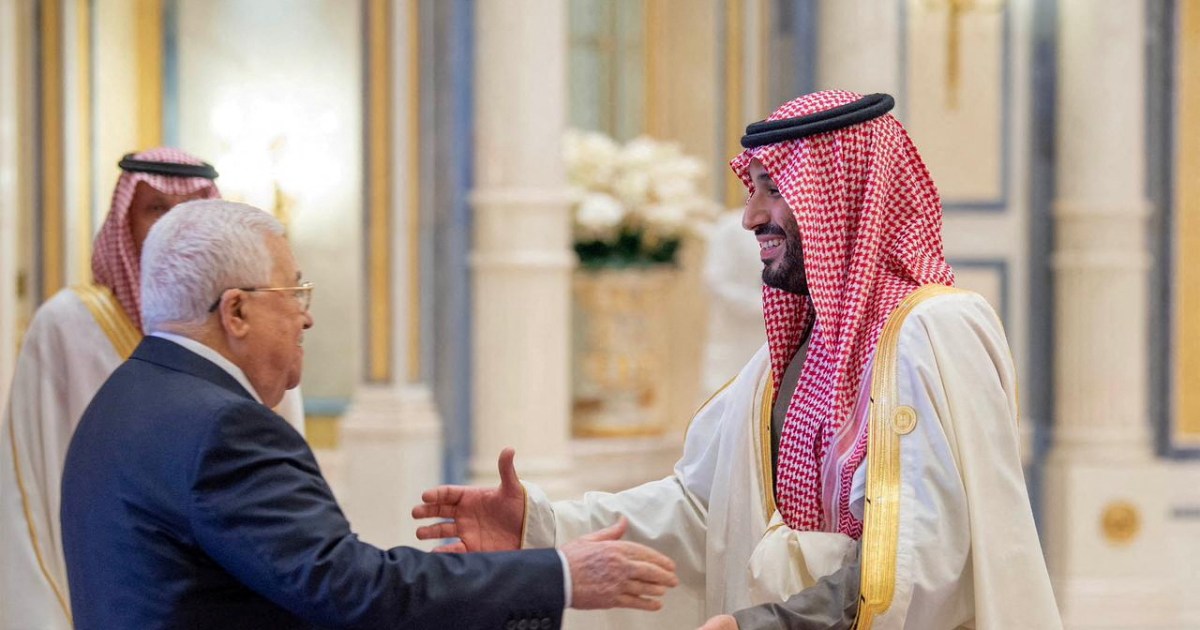
At this critical juncture, Palestine’s leaders should come together to develop a clear strategy for the reunification of the Palestinian people
As Israel continues its war on Gaza, causing loss of life and displacement on a scale that has led to it being labeled a “genocide” by various experts, the Palestinian liberation struggle is at a critical juncture.
Although the Palestinian political factions, including Hamas and Fatah, among others, undoubtedly recognize the importance of the current moment, they appear unable to come together and create a coherent and realistic vision for Palestine’s future. It is imperative for them to put aside their differences, recognize their moral responsibility to the nation and come together to develop a clear strategy for the reunification of the Palestinian people. Such a strategy must not only thwart Israel’s clearly defined and openly discussed plan to ethnically cleanse Gaza and separate it from the Palestinian homeland, but also respond to Israeli efforts to displace Palestinians in the West Bank and Israel itself.
As a Palestinian from Gaza, I believe that at this point in the conflict the opportunity is ripe to end the ongoing war in Gaza, unite Palestinian factions and chart a new political path to ending the occupation. There are ten clear steps that could and should be taken, starting with Palestinian leaders, to achieve this and put our nation on a direct path to justice, peace and statehood:
- First and foremost, all Palestinian factions should commit to fulfilling and eventually expanding the Qatar-brokered agreement to exchange Israeli prisoners in Gaza for Palestinian prisoners in Israeli prisons.
- Hamas should declare its acceptance and commitment to the Fatah reconciliation agreement it signed in Cairo in 2017. It should call on the Palestinian Authority to assume its responsibilities in Gaza and also reaffirm the commitment of resistance groups in Gaza to all agreements signed by the Palestine Liberation Organization (PLO). To counter Israel’s destructive postwar plans for Gaza, Palestinian leaders should establish an interim Gaza Governing Council composed of technocrats from the region. All former Palestinian Authority employees from Gaza, including the police, should be asked to return to their duties. This plan should also include the retention of civilian Hamas personnel, including the police. The reintegration of Hamas fighters and weapons into the Palestinian Authority forces after the end of the war should also continue to be examined.
- Hamas should publicly recognize the peace agreements signed between Israel and the Palestine Liberation Organization (PLO) as the basis for a peace process and agree to calling elections for the entire Palestinian territory within a year. In return, Israel should be pressured to recognize a reformed Hamas as an established Palestinian political faction and party to future negotiations.
- The PLO should be reactivated and reformed to ensure representation of all Palestinian parties and components within its structures. Particular attention should be paid to empowering young Palestinians, both men and women, to take on important roles within the organization and to have a say in the future of Palestine. The reformed PLO should include not only Fatah, Hamas and other PLO factions, but also representatives of the Palestinian diaspora and independent representatives from across the country. Members of the Organization should be re-elected every four years in free and fair elections, and it should be agreed that the Organization will have the final say on all critical issues affecting the Palestinian people until an independent Palestinian state is established.
- The reconstruction of Gaza should begin immediately under international and Arab supervision. While the international community should help finance the project, the brunt of the financial burden should be placed on Israel as the occupying power responsible for the destruction. Reconstruction efforts should be used to put Gaza on the path to sustainable economic growth. It should also aim to address the rapid depletion of Gaza’s environmental resources as a result of the occupation, including issues related to water and electricity shortages, shrinking fishing areas and the destruction of agricultural land.
- Israel should be made to set up a compensation fund for the families – both Israeli and Palestinian – who have fallen victim to its wars, aggression and occupation. Western countries adopted the idea that Russia would be forced to pay for its war in Ukraine and that Ukraine would be rebuilt with frozen Russian assets. The Palestinian leadership should insist that the same responsibility be placed on Israel.
- International observers should be stationed at Israel’s borders to prevent confrontations. Türkiye [Turkey]which is accepted by the Palestinians as an honest broker and, as a NATO member, has close relations with the West and Israel, could be asked to take on this important responsibility.
- The siege of Gaza should be fully and unconditionally lifted, its border crossings, airports and ports reopened and its residents given full freedom of movement. In addition, a permanent and safe passage should be established between Gaza and the West Bank. Turkiye can also play a crucial role in opening Gaza to the world by establishing sea and air bridges for reconstruction and development.
- Israel should be pressured to immediately and unconditionally halt all its settlement activities and initiate comprehensive negotiations to end its occupation under UN auspices based on the 1967 borders and within a specified time frame of no more than three years. The Arab League should continue to push for its 2002 Arab Peace Initiative, which called on all Arab states to recognize and normalize relations with Israel in return for the establishment of a Palestinian state on the 1967 borders with East Jerusalem as its capital. Any further attempts at normalization should be frozen until this is achieved.
- Finally, if this political path towards sustainable peace and dignified coexistence fails or encounters a significant obstacle, a reformed PLO, kept under control by the Palestinian people through regular elections, should be accepted as the sole authority that can decide the future direction and the nature of the Palestinian liberation struggle.
The views expressed in this article are the author’s own and do not necessarily reflect the editorial stance of Al Jazeera.






Recent Comments